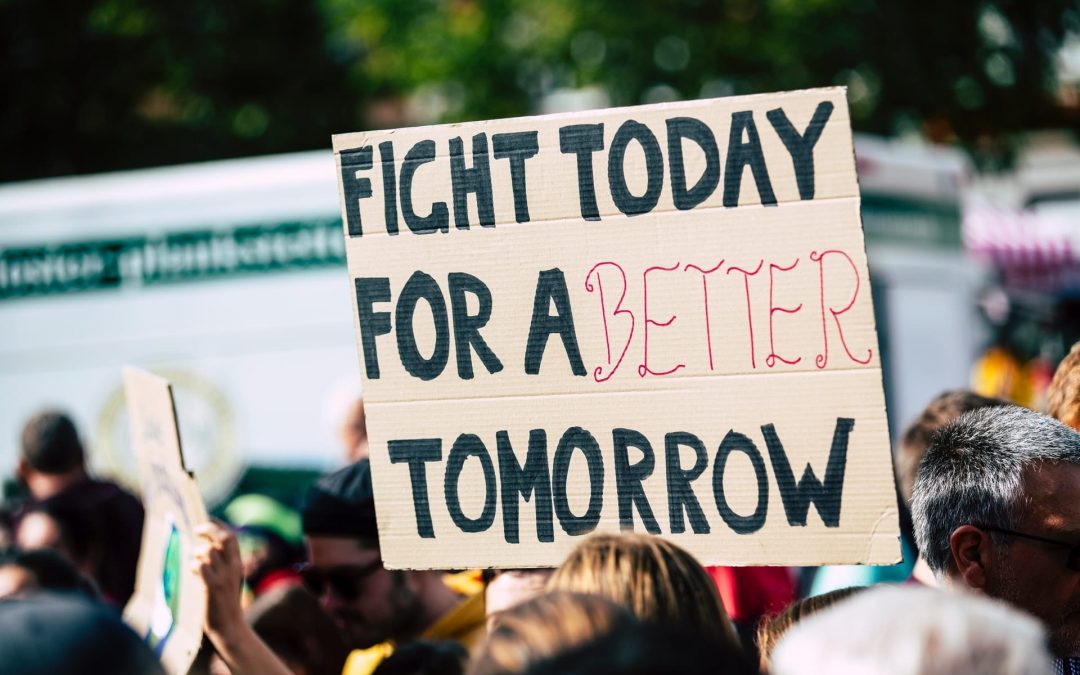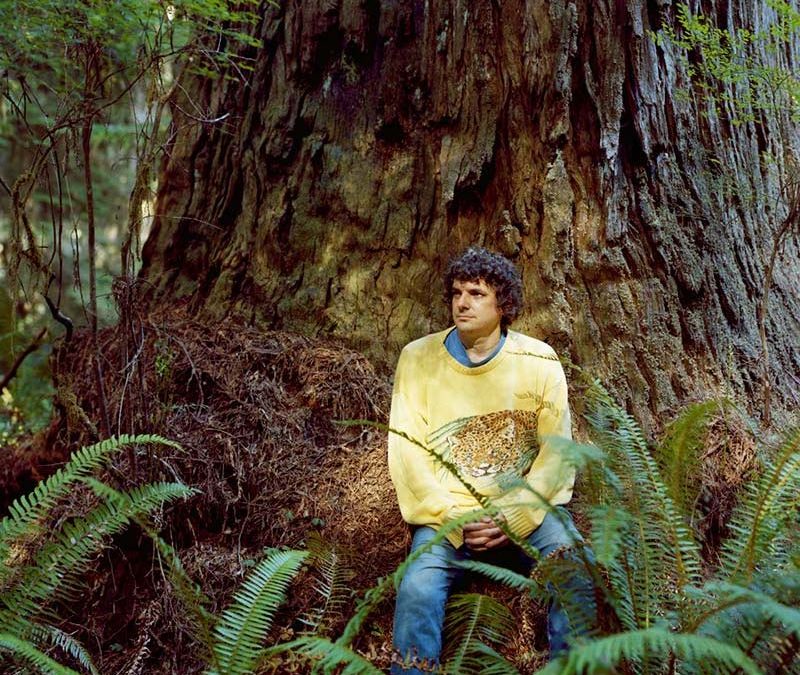I haven’t had much time to write, hence the lack of essays. We’ve been organizing and I can never seem to get in a good writing groove when my schedule is filled with community obligations.
That said, one of the most frustrating things I’ve encountered over the years is a lack of organizing knowledge and information. Groups such as the Highlander Center or Greenpeace provide manuals, but I would guess that over 99% of the articles and essays produced on progressive media outlets focus on what’s wrong, not what people are doing about it.
Part of the problem is that many progressive media outlets aren’t interested in such articles. However, organizers and activists are also to blame as we simply don’t write as often as analysts, professors, or essayists.
Below is a lengthy and unstructured series of reflections on the sort of organizing work I’m currently doing in Northwest Indiana, where I live and work. I hope people will find some of my insights interesting and useful.
TRUMP’S INAUGURATION & LACK OF ORGANIZATION
Back in January of 2017, hundreds of people throughout the Northwest Indiana region and millions across the United States were regularly attending events, meetings and rallies. At the time, I recognized that such a pace was not sustainable, and for many reasons.
First, it’s hard to replicate large symbolic actions such as protests because those sort of events require a lot of time, resources and manpower. Plus, the utility of large-scale rallies is limited, especially if they don’t take place within the context of broader campaigns and political projects.
Second, it was clear from the start that many groups were quite inexperienced with regard to their basic organizing knowledge. I attended meeting after meeting where basic facilitation skills and meeting structures were completely lacking. People were confusing terminologies and misunderstanding the difference between tactics and strategy, vision and programme.
Of course, all of these things are fixable, but that requires a certain level of humility and trust. If organizations and organizers are insular, it’s difficult to provide advice. Toxic personalities play a discouraging role as well.
Third, many of the groups that popped-up after Trump’s inauguration were tied to groups such as Indivisible and Our Revolution. Both groups, however, have failed to garner serious support or provide a viable path forward. In my opinion, that’s the inevitable result of top-down organizational structures and ideas.
In Northwest Indiana (NWI), where I live, hundreds of people were showing up to town hall events where elected Democrats would essentially give marching orders to those in attendance: “Send more emails to your elected officials!” This strategy, if one could even call it that, has been a great waste of time and energy. Even worse, progressives missed a potentially fruitful political opportunity to immediately orientate thousands of first-time activists.
That said, many progressive groups have formed in NWI and throughout the state of Indiana since Trump’s inauguration. Without question, one of the biggest challenges we face is a lack of coordination between progressive organizations at the local, regional and state levels. Collectively developing vision, strategies and tactics is difficult work, but it’s also essential if we hope to build long-lasting institutions capable of addressing not only our immediate needs, but also our long-term ideals.
Right now, the Michigan City Social Justice Group (MCSJG), which is the organization I’ve been primarily working with since 2017, is going through an internal restructuring process. It’s a needed and welcomed step for an organization that’s existed for a little more than a year. Fortunately, many of the group’s members have embraced and welcomed the process.
As an organization, we’ve had successes and setbacks (as any political organization does), but we’re moving in the right direction and doing all of the necessary and sometimes monotonous tasks that lay a solid foundation for what should become a growing organization.
Should we become a 501(c)3 or a ‘Super Pac?’ If we want to raise money, we have to become more professionalized and that requires legal aid, loads of paperwork ,and serious accountability.
Political organizing work, while fulfilling and empowering, is very trying, stressful and at times, quite tedious. Filing paperwork with the IRS, obtaining state documentation, requesting municipal permits for events, sitting through two hour meetings about risk management and conflict resolution plans, creating websites, managing social media and crafting word documents isn’t exactly the most exhilarating work, but it’s absolutely necessary if people are interested in creating a serious organization that has the potential to grow and significantly change the political, cultural, economic and civic structures of our city, county and state.
The overall scope of such a project is daunting, which is why most people either remain at the level of engaged citizen (but not a member of an organization) or join a preexisting organization (because it’s much easier than starting one from scratch, especially if you’re a precarious worker trying to make ends meet).
For those reasons and many others, including how preexisting organizations treat newcomers, it’s rare to find a group of people who are willing to create something new. I’m grateful to have met such committed and serious folks.
TRUMP: DISTRACTION OR TARGET?
One of the primary challenges progressive organizations faced in the immediate aftermath of Trump’s victory, and still face, is how much time they should spend specifically targeting Trump, and how much time and effort should they spend on local and state-wide efforts. Of course, in an ideal world, all of these efforts would work with each other in a strategic manner, but that’s not always possible.
For example, most of the progressive groups that exist in the state of Indiana are not in contact with one another. Activists, for example, in NWI have very little idea of what’s happening in Fort Wayne or Bloomington. We have friends in those areas, and occasionally discuss ongoing organizing efforts, but not in a systematic fashion.
As I mentioned above, one of our primary challenges at the state level is increasing coordination between existing groups, especially those operating at the grassroots level. The major NGOs communicate with each other, but they’re not actively building independent organizations or coalitions in our state. To be honest, we don’t expect them to. We’re not looking to replicate the structures of existing NGOs — we’re trying to build an independent progressive organization and series of institutions whose primary focus is building power at the grassroots level.
The question of whether or not groups should respond to each of Trump’s reactionary policy directives or statements cannot be understated. Back in January of 2017, people routinely blew up at meetings when we told them that we weren’t going to put a ton of energy into trying to keep Jeff Sessions from being the Attorney General, or that we weren’t interested in the Russia-Trump scandal.
It’s easy to see how liberal groups and the Democratic Party have been so unsuccessful in recent years: they focus on the issues the corporate media highlights, as opposed to focusing on the needs and interests of working-class, poor people, and the environment. Their focus is also very short-term. Many of these groups have a difficult time imagining politics beyond election cycles.
Without doubt, it makes sense to oppose (when possible) the Trump Administration and the GOP’s most damaging and reactionary excesses. However, it also makes sense to step back, reflect, and determine how we’re going to build the sort of organizations and movements that it will take to win. Trying to take down a president when your group can’t even hold regular and productive meetings is not only a waste of time, it’s laughable, and at worst, it’s a surefire way to burn people out.
On a tactical level, groups can use Trump’s vulgarity and brutish behavior as propaganda, but that’s a short-term outreach strategy. There are simply too many people and organizations who’ve built their ‘resistance’ on an anti-Trump platform, and it’s proven to be wholly inadequate. The tax bill, for instance, provided an opportunity to coalesce around an issue of great importance and one that resonated with ordinary folks (some polls suggest that over 70% of Americans were opposed to the bill). Progressives were unable to capitalize on this moment due to our internal disorganization, lack of vision and capacity.
To be fair, many millions of people are doing their best on a daily basis to stop Trump’s agenda, but they are disconnected, lacking organizational knowledge, and adequate resources.
LOCAL-STATE-NATIONAL-INTERNATIONAL ORGANIZING
We’re extremely limited in terms of what we can do at the municipal level in the state of Indiana. For instance, we can’t raise income, corporate or sales taxes (so much for the GOP’s mantra about ‘local control’); we’re also unable to put in place rent control caps or raise the minimum wage above the federal level; sanctuary cities are illegal; and we have limited control over the power company monopolies that exist throughout the state.
These limitations pose great challenges, but they also force us to think about creative alternatives and strategies that can alter existing power relations. Ideally, we would have both a local and state-wide strategy to change legislation in Indianapolis, but that’s rarely the case. More commonly, major NGOs (with limited success) and unions (with even less success) are the groups campaigning at the state level. Outside/independent groups and social movements have limited capacity and as a result, virtually no power to influence state politics.
Electorally, one strategy could be to fill as many local seats with progressives as possible, while simultaneously bolstering local and regional social movement groups and engaging in state-wide efforts when possible. That’s probably the most reasonable short-term strategy I could see for regional groups.
That said, running progressives for elected office is a tricky game. Should they run under a Democratic ticket? Should they run as Independents? Or should they run as Greens? Obviously, there are no easy answers to this question. Context should dictate the answer.
In Indiana, the Democratic Party is an empty vessel. Perhaps with a decent strategy and a committed group of organizers and activists, the local, county and state party apparatuses could be seized and used for progressive reforms (at least in the short-term).
The Democratic Party continues to win in cities like Michigan City because they’ve been around longer than anyone else and our city is 30% Black, working-class, and disproportionately union, hence GOP candidates stand little chance at winning local seats, at least that’s been true historically (Since 2010, the GOP has flourished in our country and state).
At the end of the day, the question organizers ask more than any other is: Do we have the capacity? What is practical with our current numbers? In our small city, we have 20 committed members in the Michigan City Social Justice Group (MCSJG). How do we build our capacity while engaging in meaningful campaigns that provide real-world results for poor and working-class people? What projects will produce the greatest results over the long-term? These are constant and never-ending questions.
At every level, the primary issue is a matter of capacity and resources. Progressives will accomplish very little at the municipal level in a state like Indiana if we don’t radically change legislation downstate. It’s just that simple. It’s true that we can get creative and potentially develop alternative structures and revenue, but without the ability to raise corporate taxes, income taxes, the minimum wage, or put in place rent controls, we’re severely hampered in the short-term.
The new version of the Poor People’s Campaign is attempting to bring together some of these groups, but their platform is unclear, as they’ve put tactics before strategy (an ongoing and major problem on the Left, especially among antiwar activists and members of the progressive-faith community). There seems to be a persistent and incorrect belief among progressives that simply getting arrested and putting on the largest public spectacle imaginable will bring people into our movements. Sometimes, it’s true: people come along for the ride, but only for a limited amount of time. For the most part, people want concrete results and a clear platform.
Most people also have jobs, families and lives outside of political activism, hence they have limited time and patience for groups and movements, such as Occupy, which was disorganized, unclear in what it hoped to achieve, and isolated from other progressive organizations.
Street theater and protests are nice, symbolic events, and I enjoy them as much as the next person, but they are not an end, nor are they the primary means to our collective ends. Protests and occupations are simply tactics, and over-used ones at that. While occupations such as the ones that took place at Zucatti Park and Standing Rock are more useful than rallies, they’re also completely unsustainable.
At the national level, I’ve been unable to find an organization, movement or campaign that can tie into our existing local or regional organizing efforts. The Poor People’s Campaign would be the closest example, but that’s about it. Again, I’m assuming this varies depending on where one lives. For instance, I’ve heard that some Indivisible groups in Florida are doing great work. I’ve heard the same about DSA groups in Chicago. Again, however, the focus of these organizations is strictly electoral in nature. Here, in Northwest Indiana, the Sanders’ campaign-offshoot, Our Revolution, hasn’t taken off. Bringing Bernie’s supporters back into the mix has been an ongoing and frustrating effort, but also a necessary one. The 2018 midterms should offer an opportunity to reengage this constituency.
With regard to electoral campaigns, it’s important for progressive organizers to obtain contact lists. Thousands of addresses, phone numbers, and email lists are created, then lost or stashed away. It’s a real shame because many of the people who work on electoral campaigns disengage between cycles while grassroots groups remain engaged but have a difficult time gathering contacts.
We’ll be using our community space, PARC (Politics Art Roots Culture), as a primary organizing hub for Democrats during the 2018 midterm election cycle. Elections are one of the few times ordinary Americans are politically active. To me, it makes sense to expose liberals and Dems to leftwing ideas and forms of organizing that take place outside of the electoral sphere, and within the social movement context. As my friend once said, “We meet people where they’re at, but we don’t leave them there.”
PARC will fully support and host phone-banking, canvassing, and fundraising efforts, though it remains to be seen to what degree the MCSJG will engage with the 2018 midterms. Overall, we think it makes strategic sense to get rid of the GOP in the immediate future. They pose an immediate and grave threat to the planet and species and we’re constantly in triage mode when they’re in power.
In our thinking, progressives can’t afford to ignore the electoral arena of struggle, nor can we afford purity politics. Poor and working-class people across the globe are suffering as a result of Trump and the GOP’s insane agenda, and the Democratic Party’s capitulation, and inability or unwillingness to provide a serious alternative. At the same time, many people on the Left refuse to acknowledge the limitations of the Green Party or the various Socialist parties who stand absolutely no immediate chance at gaining power.
On the international level, it’s hard to fathom how progressive organizations in Red States such as Indiana can build serious and effective working relationships with organizers overseas if we can barely work together at the local, regional, state or national level. To me, it makes more sense for groups to build their base and create relationships with groups who share similar values and then focus on larger projects. We have to find the issues that can unite progressive groups and go form there (Sanders’ platform provided a model).
I get calls and emails from folks throughout Indiana who want to start state-wide efforts, yet they have virtually no base of support in their hometowns. How can we project regional or state power if we don’t have power in our cities and towns? It doesn’t make sense, which is why so many groups who engage in meaningful work generate limited results.
SPACE AND COMMUNITY
From the very start, it was clear to my friend and long-time organizing partner and I that we had to open a community center to serve as a political and cultural organizing space. Having a space to operate in has been essential to MCSJG’s work. It’s also been quite useful for regional and even national groups who want to expand their reach to localities such as Michigan City.
Right now, we have an organizer from the Sierra Club’s ‘Beyond Coal’ campaign who operates and holds meetings in our space. As I mentioned before, the MCSJG uses our space as their primary hub, as does the PFLAG (Parents & Friends of Gays and Lesbians) – LaPorte County group. Mothers Clean Air Force and Veterans for Peace have held events in our space, as have regional organizations.
We hold bi-monthly live music/cultural events which double as fundraisers and use the center as a space where people can simply come, hang out, have a conversation and a cup of coffee. We have an enormous book collection that anyone can utilize and free Wi-Fi.
This year, we’re going through the process of becoming an NGO. We could remain a LLC, but that would greatly limit opportunities for grants and foundational money. Obviously, the most strategic and sustainable way to fund the space is a small donor program, but that takes time to build. The trick is keeping the overhead as low as possible so if/when the foundational money dries up, the space can remain open.
Again, I can’t stress enough the importance of having a space where people can gather, talk, laugh, learn, drink, dance, and create community. It’s also important for organizations and movements to be rooted. In that way, having a space provides a foundation for everything that follows, especially in an era of hyper-alienation.
Over time, we want the space to become a cooperative effort. The idea being that Sergio and I should relinquish control of the space in the coming years and hand over the reigns to a new generation of organizers, artists, and community members who will probably have a different and fresh idea of what the space should become. We welcome the change.
For now, we have all of our regularly scheduled events on the calendar and a few big ones on the horizon. On Saturday, January 20th, 2018, we’re holding a ‘Dump Trump & The GOP’ fundraiser/bash where we’ll have regional musicians performing and local organizers talking about their ongoing work and how people can get involved.
Next month, we have a ‘Medicare For All’ event where we’ll discuss Bernie Sanders’ proposal and how folks can get involved at the local level. I’ve already had a wonderful conversation with a woman form Southeast Indiana who, frustrated with the election results and previously disengaged, took it upon herself to start a free medical clinic in a suburb of Cincinnati where she resides.
I think such projects could be very useful if properly managed. Put differently, it’s clear that certain groups and individuals are simply interested in providing immediate support. Many of the volunteer groups in our city, region, and state focus on providing services, but they rarely, if ever, address the underlying political, economic, and social institutions that perpetuate the very systemic problems they provide immediate relief for.
In our thinking, progressive groups should be able to do all of the above: provide needed services, oppose and stop immediate threats (development projects, legislation, etc.), and propose reforms while developing long-term alternatives to existing structures (what some would call ‘revolution’). Again, the primary challenges are a lack of capacity, vision, resources, and time. The never-ending question is always: what sort of events will allow us maximum outreach and the ability to gain capacity?
ADVOCACY, MOBOLIZATION & ORGANIZING
Jane McAlevey makes a clear and important distinction between advocacy, mobilizing and organizing in her latest book, No Shortcuts: Organizing for Power in the New Gilded Age. The reality is that many groups are actually advocating or mobilizing as opposed to organizing. For McAlevey, advocacy is the lowest form of involvement and the least capable of building serious power. Here, one should think of NGOs battling corporations in court, with lawyers and officials making the important decisions.
Mobilizing is a step-up from advocacy, but still fails to meet McAlevey’s threshold for proper ‘organizing.’ In the mobilizing model, organizations (unions, NGOs, neighborhood groups, etc.) regularly preech to the choir and turn out self-identifying progressives to rallies and major events, but this model easily burns people out and doesn’t provide a long-term path to building power at the grassroots level. Occupy and the ‘Right to Work’ protests in Madison, Wisconsin, are good examples of mobilization efforts.
Organizing, on the other hand, is the highest form of engagement and requires the most time, effort, and strategy. The primary goal of true community organizing is empowering the maximum number of people and providing them with the knowledge and tools necessary to win the things they want and need. The aim is to get ordinary people to join existing struggles through identifying “organic leaders” in workplaces and neighborhoods.
To be clear, “organic leaders” are not people who simply show up to every meeting or rally — they are the sort of folks who are highly respected in the community. If an “organic leader” vouches for someone or some cause, people listen. That’s the basic criteria, and people would be wise to immediately identify these individuals as they hold the most valuable social capital.
Right now, we’re capable of small-scale mobilization in Northwest Indiana. We’ve been able to stop GEO from building a private immigrant detention facility in Gary, Indiana. And a new group has formed in Elkhart, Indiana, to stop CoreCivic from constructing a private immigrant detention facility in their county. Currently, we have the power and numbers to mobilize and stop projects or certain pieces of legislation, but not much else.
It would be wise for every organizer in the country to read McAlevey’s book. She highlights and articulates so much of what I’ve encountered and thought about over the past 12 years of organizing with leftwing/progressive groups and movements. It’s truly an amazing piece of work. The only issue that I found in the book is that McAlevey doesn’t necessarily mention what, beyond immediate needs, people should or could be fighting for.
Perhaps this is the limitation of an organizer’s perspective: we have too much to do and not enough time to contemplate what sort of society we’re trying to achieve. But that’s also part of the problem: too many organizers and groups are fighting back, but with little idea of what they hope to create over the long-term. The question remains: what sort of society do we want to live in and how should it be structured?
Those questions shouldn’t only be asked by philosophers or academics — those questions should be answered by anyone and everyone who’s interested in living in a decent world.
I’ll be writing more essays in the weeks and months to come. I hope to keep folks informed of our mistakes and progress, challenges and successes. In the meantime, I hope this finds all of our brothers and sisters in the struggle in good health and spirits. It takes great motivation and discipline to remain engaged in such cynical times.
Vincent Emanuele is a writer and community organizer. He is the co-founder of P.A.R.C. (Politics Art Roots Culture), a political-cultural center in Michigan City, Indiana. He’s a member of the Michigan City Social Justice Group, Veterans For Peace, and the National Writers Union – UAW Local 1981. He can be reached at vincent.emanuele333@gmail.com







